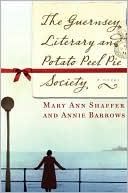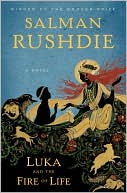Beirut Blues
With the acclaim won by her first two novels, Hanan al-Shaykh established herself as the Arab world's foremost woman writer. Beirut Blues, published to similar acclaim, further confirms her place in Arabic literature, and brings her writing to a new, groundbreaking level.\ The daring fragmented structure of this epistolary novel mirrors the chaos surrounding the heroine, Asmahan, as she futilely writes letters to her loved ones, to her friends, to Beirut, and to the war itself—letters of...
Search in google:
With the acclaim won by her first two novels, Hanan al-Shaykh established herself as the Arab world's foremost woman writer. Beirut Blues, published to similar acclaim, further confirms her place in Arabic literature, and brings her writing to a new, groundbreaking level.The daring fragmented structure of this epistolary novel mirrors the chaos surrounding the heroine, Asmahan, as she futilely writes letters to her loved ones, to her friends, to Beirut, and to the war itself—letters of lament that are never to be answered except with their own resounding echoes. In Beirut Blues, Hanan al-Shaykh evokes a Beirut that has been seen by few, and that will never be seen again.Publishers WeeklyAl-Shaykh's third novel takes the form of a series of letters through which a woman contrasts Beirut's cosmopolitan past with its disastrous present. (Aug.)
\ Publishers Weekly\ - Publisher's Weekly\ Al-Shaykh's third novel takes the form of a series of letters through which a woman contrasts Beirut's cosmopolitan past with its disastrous present. (Aug.)\ \ \ \ \ Library JournalHow can one respond when home becomes unrecognizable? In her third novel (following The Story of Zahra, Interlink, 1992), al-Shaykh uses the unsent letters of her narrator, Asmaran, to explore the deep sorrows and profound transformations, external and internal, brought by lingering war. As daughter, granddaughter, lover, friend, and striking woman on the street, Asmaran reveals herself as poised yet devastated, affecting yet wounded by change and constant danger. She writes long, rambling, eloquent letters to loved ones, to Beirut, and to the war itself. Through these, the reader learns of flight and family, arrack and cannabis, checkpoints, sandbags, and ruin. Episodic and densely populated, this work is confusing but tender and memorable, a well-translated glimpse into a world most American readers can little understand. Recommended for larger fiction collections.Janet Ingraham, Worthington P.L., Ohio\ \








